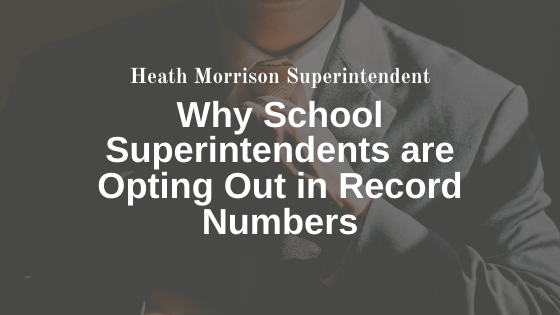COVID-19 has taken its toll on American society in a number of ways. One area that has experienced significant disruption has been in public education leadership roles. Across the nation, there has been significant turnover of school district superintendents. School boards across a multitude of communities have been given the challenge of identifying qualified – and willing – replacements.
In an already complex and difficult role, the added stress of navigating COVID in school systems appears to have taken a toll on many superintendents across the country. In fact, in the past year, four of our nation’s largest school systems – Chicago, Houston, Los Angeles, and New Year – have experienced a change in leadership.
The School Superintendents Association (AASA) tracks 9,000 members across the nation. Officials there report that departures in these large districts have trickled down through mid-sized and small districts, as well.
An AASA spokesperson said school superintendents have been working 15-hour days, seven days a week, leaving hundreds of these highly skilled professionals exhausted. Many superintendents have opted for retirement despite having a year or more left on their contracts. AASA called the turnover rate “unprecedented”.
Over the past 18 months, school systems have had to operate under guidance and policies developed through polarizing disagreement between local, state and federal policymakers. Superintendents have been caught in this divide in profound ways, adding incredible stress to a role that demands critical decision making on a daily basis.
There were hopes among the professional education community that the fall of 2021 would see a return to normal. However, the emergence of the delta variant has many superintendents developing their district’s health protocols resembling those of the previous school year. Again, under often competing local, state and federal guidance in many regions.
The short and long-term impact on student achievement due to the turnover our nation is experiencing in education leadership should be closely monitored. Job tenure in the office of a superintendent was already low across the country, in the absence of COVID. If the trend continues, is the next generation of school district superintendents prepared to lead?

